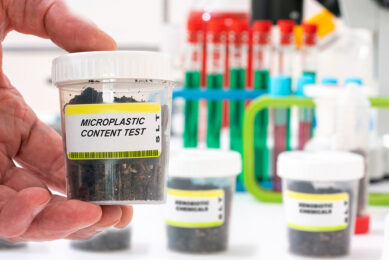Optimism about 2nd generation biofuels

In thirteen years’ time, at least 10% of fuel must be made from biomass. It’s an ambitious plan, but not impossible, was the optimistic view that emerged during the symposium ‘Biobased economy, fuelling the future’, held 20 March in Wageningen.
least 10% of fuel must be derived from plant or animal material. It’s an
ambitious target, especially since the previous one of 2% by 2005 was not
achieved.
Nevertheless, expectations are now high, as research on the
second-generation biofuels is progressing rapidly.
Made from
waste
Second generation fuels are produced from agricultural waste
products such as straw, instead of from crops grown specifically for biofuel
production, such as canola and palm oil. Whereas previously it was scientists
who did research on biofuel, companies are now crying out for plant waste so
that they can convert it into energy. ‘The second generation potential is much
bigger,’ said invited speaker Minke Noordermeer, a researcher at Shell. New
technologies for converting waste products will considerably lower carbon
dioxide emissions and also prevent competition with food production, one of the
most important arguments against biofuels.
Alcohol
by-products
Jan de Bont, director of research and development at the
alcohol producing company Royal Nedalco saus that his company is looking for
ways to use alcohol by-products as raw material for biofuels. After a long
search for the right enzymes and yeasts, Nedalco is now about to build a factory
in which alcohol by-products will be converted into bio-ethanol. Shell has plans
for a similar factory.
Those present agreed that this is a good prospect, but
there’s a long way to go. The costs and the amount of biomass
needed are still too high.
Important step
‘We
still haven’t found the best way,’ was the conclusion of the chairman, Professor
Johan Sanders, chair of Valorisation of Plant Production in Chains at Wageningen
University. ‘But we’ve only just begun. Nevertheless, it’s an important step
that we now have thirteen years in Europe to all pursue the same goal. This way
politics is pushing the private sector to do research as well.’
Related link:
Dossier AllAbout BioEnergy
To receive the
AllAboutFeed newsletter click here.











